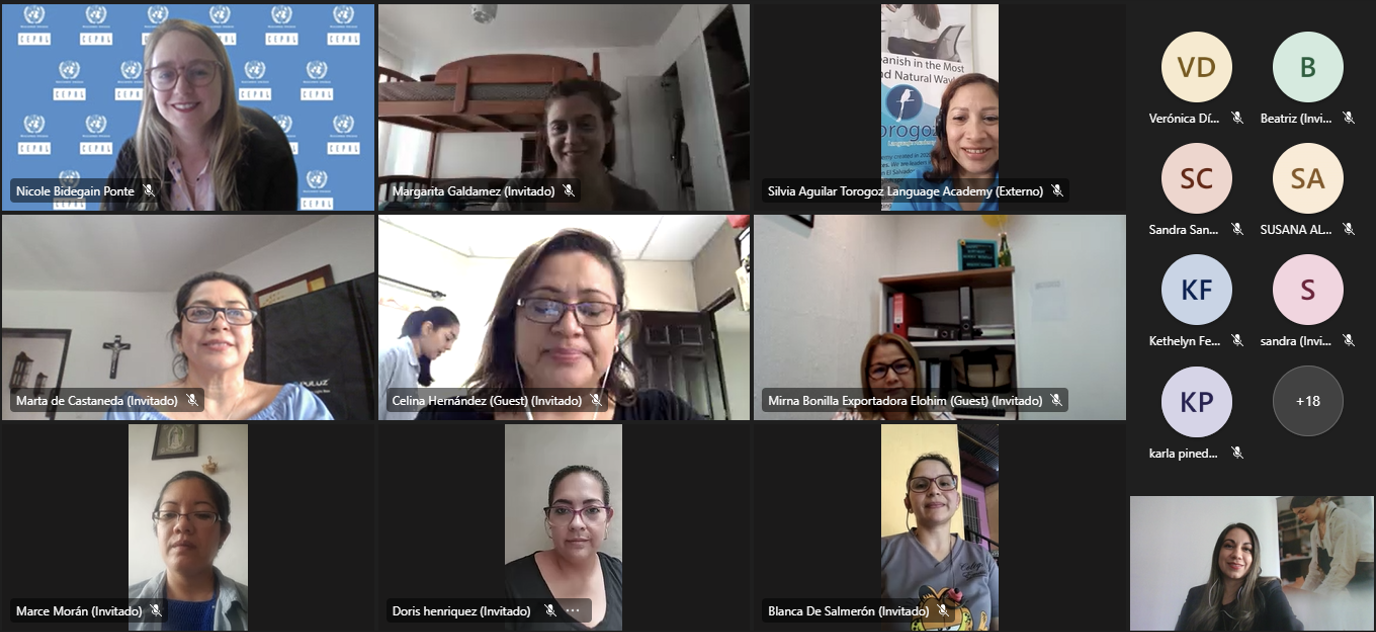ECLAC highlights progress in promoting women’s autonomy in trade in Latin America and the Caribbean
Work area(s)
Topic(s)
Division for Gender Affairs of the Economic Commission for Latin America and the Caribbean (ECLAC) participated in the Economic Autonomy Module of the workshop "Strategy for the empowerment and leadership of women exporters: Global trade from a gender perspective." Organized by the Mujer Exportasv program, it was held in October 2022.

The autonomy of women refers to the ability to make free and informed decisions about their lives, so that they can be and do according to their own aspirations and desires, in the historical context that makes them possible (CEPAL, 2011). It is essential to guarantee the exercise of human rights in a context of full equality and it is a precondition for women to participate as subjects of development.
This was one of the reflections shared by Nicole Bidegain Ponte, Social Affairs Officer of the Division for Gender Affairs of ECLAC, in her presentation. The event, aimed at training women entrepreneurs, is an initiative of the Mujer Exportasv program, of the Export and Investment Promotion Agency of El Salvador (PROESA), launched in May 2022 to empower and promote economic development in women entrepreneurs with export potential.
The Social Affairs Officer of the Division of Gender Affairs of ECLAC stressed that international commitments, such as the Santiago Commitment and the Montevideo Strategy, as well as the Regional Gender Agenda, are key to guaranteeing the autonomy of women and gender equality. Among them, she highlighted the Regional Conference on Women in Latin America and the Caribbean, which will take place from November 7 to 11, 2022, in Buenos Aires, whose central theme will be "The care society as a horizon for a recovery sustainability with gender equality in Latin America and the Caribbean”.
In addition, Nicole Bidegain Ponte mentioned the progress in terms of increasing the number of provisions related to gender equality in trade agreements, which is observed in various countries in the region, such as Chile, Uruguay and Argentina, Brazil, Ecuador, Mexico, Peru, and Paraguay. However, she added, beyond this progress, it is necessary to mainstreaming the gender perspective in the different trade disciplines.
Finally, Bidegain Ponte pointed out that the design of specific programs aimed at the participation of women in international trade, such as the Mujer Exportasv program in El Salvador, is a key measure to achieve gender equality in access to international trade opportunities. Its creation is of the utmost importance to overcome the barriers faced by women who export or want to export, due to the structural challenges of gender inequality.
More information:
See the presentation “Advances in the economic autonomy of women in Latin America and the Caribbean” (available in Spanish).